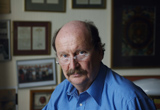“Absence of evidence is not evidence of absence.”
Amongst the many misleading arguments, which are frequently used to promote useless treatments, this one occupies a prominent place. When I first heard it, I was impressed: it is succinct and elegant. In fact, it is also entirely logical: the absence of evidence for extra-terrestrial life represents no evidence that such life does not exist; just because you have not seen someone being struck by lightning does not mean that lightening does not hit people; you may never have seen the Northern Lights, yet they do exist.
If the argument is correct, how can it be simultaneously misleading? The fallacy arises not from the argument itself, but from the way it is often used in the promotion of quackery. Prince Charles’ “Duchy Originals” are selling a herbal “Detox tincture” made from extracts of Dandelion and Artichoke. For neither ingredient is there good evidence that it eliminates toxins from the body. Clearly, therefore there is an “absence of evidence.” Ask any proponent of this type of detox and she will tell you that this “absence of evidence” is not “evidence of absence” of an effect. “Science has found no proof yet,” she might say, “but this does not mean that it does not detoxify my system.” Ask a chiropractor who advocates chiropractic care for otitis or bed-wetting; they might agree with you that there is no evidence of effectiveness—but they are bound to claim that this does not constitute evidence that chiropractic does not work. Ask a homeopath who treats autistic children why he prescribes homeopathic sugar pills despite the absence of evidence—the answer will be that the absence of evidence does not provide evidence of the absence of a benefit.
In alternative medicine, this argument is used to silence doubters and critics. As long as you cannot show that an unproven treatment definitely does not work, we are all supposed to give it “the benefit of doubt” because it might just work, because patients do like it, because it has been around for hundreds of years, because Prince Charles’ firm sells it, etc, etc.
This argument can appear so compelling that it is easy to forget why it is misleading. In real medicine, we rarely give “the benefit of doubt” to unproven treatments. In the interest of our patients, we usually consider any therapy ineffective until someone shows us sound evidence to the contrary. The onus to demonstrate effectiveness of a treatment rests squarely on the shoulders of those who promote it by claiming that it is useful.
Not so in alternative medicine! Here people tend to argue precisely the other way round: as long as we have not proven that a treatment is ineffective, we should happily use it. This implies that those who object to this line of thinking have to demonstrate that the treatment in question does not work. In other words, the burden of proof is reversed. This reversal is risky to the point of endangering the health of patients.
The “absence of evidence…” argument in itself is fine; in the hands of promoters of nonsense, however, it all too often turns into a prime example of apparently plausible yet fundamentally flawed logic which can mislead us all.
Edzard Ernst is a professor of complementary medicine at the Peninsula Medical School, Exeter.
